Posts Tagged: Pet Safety
Splish Splash: Where Should Your Dog Swim?
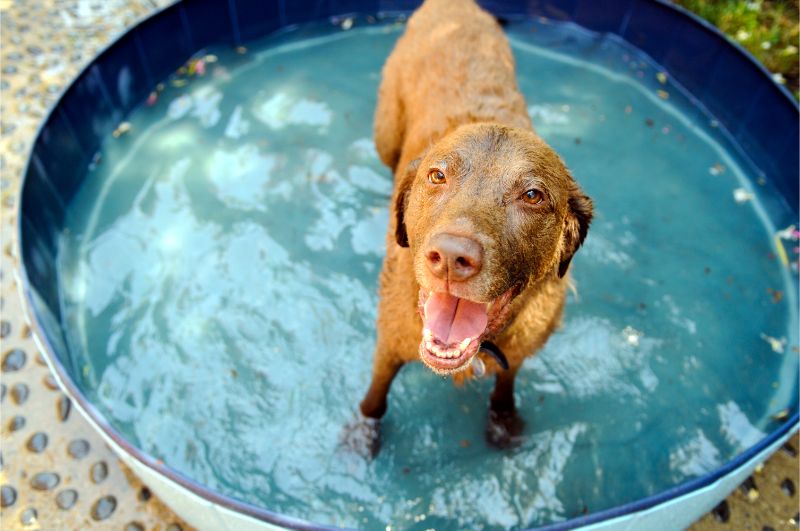
For dogs that love the water, going for a swim on a hot day is a real treat and one of the best parts of summer! However, finding a safe place for your pooch to splash around in is another issue entirely. Should your dog swim in a chlorinated pool? What about a local lake or river? Is it safer to just fill up a kiddie pool in the backyard?
At Lone Tree Veterinary Medical Center, we want pets to get plenty of exercise and bonding time with their owners. With careful observation, appropriate safety measures, and a little common sense, you might find swimming to be an enjoyable activity for you and your furry pal!
Continue…Pet Safety During Fire Season
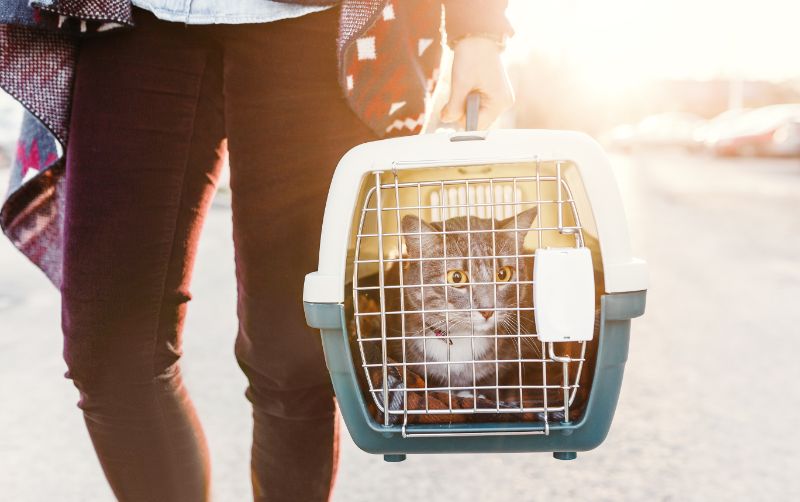
In the greater Denver area and across Colorado and the West, wildfires are a serious concern, especially during a dry year. While it’s easy to understand the danger wildfires pose to people, homes and property, have you ever considered how wildfires affect our pets? The team at Lone Tree Veterinary Medical Center is here with tips for pet safety during the wildfire season!
Wildfire Evacuations
Suffice it to say that evacuations don’t always occur at a time that’s convenient for us. That’s why it’s important to plan ahead and know how to care for your pet should the need arise. Continue…
A Brave New (Pain Free) World: All About CBD Oil for Pets
 In 2000, Colorado became one of the first states to legalize the use of marijuana for medicinal purposes. Since then, many other states have followed suit (29 to be exact). Nine states (including Colorado) have legalized its recreational use, as well.
In 2000, Colorado became one of the first states to legalize the use of marijuana for medicinal purposes. Since then, many other states have followed suit (29 to be exact). Nine states (including Colorado) have legalized its recreational use, as well.
What does this have to do with pets? More than you may realize. Not only have cases of marijuana toxicity in pets increased since marijuana laws began passing, but pet owners have also been turning to marijuana to try and help their pets with a variety of medical issues. Specifically, they’re seeking the oil extracted from the hemp plant, called cannabidiol oil (CBD oil) to treat their pet’s pain and other ailments.
The use of CBD oil for pets is growing in popularity, but is it right for your pet?
Stay Cool! Avoiding Hyperthermia in Pets
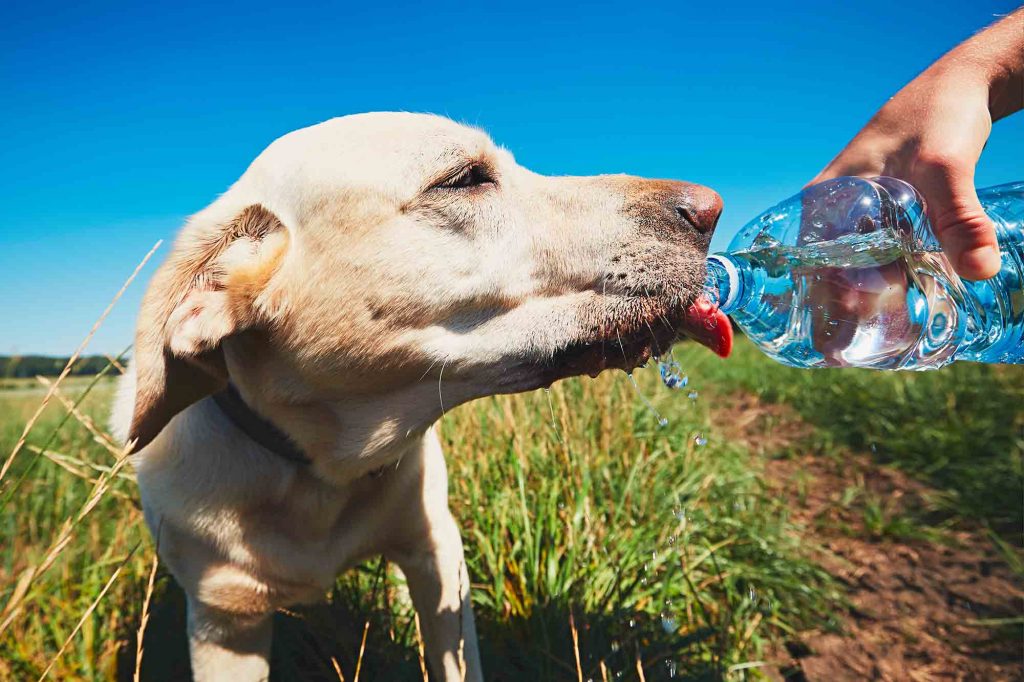 Hyperthermia in pets, also known as heat stroke, is one of the biggest warm weather risks facing pets in the summertime. As temperatures rise, it’s important for pet owners to take their pets’ well-being into consideration. Warm weather doesn’t mean we can’t have some fun in the sun with our pets. Rather, it means that we need to be aware of the risks and plan ahead for their safety and well-being.
Hyperthermia in pets, also known as heat stroke, is one of the biggest warm weather risks facing pets in the summertime. As temperatures rise, it’s important for pet owners to take their pets’ well-being into consideration. Warm weather doesn’t mean we can’t have some fun in the sun with our pets. Rather, it means that we need to be aware of the risks and plan ahead for their safety and well-being.
Hyperthermia in pets, also known as heat stroke, is one of the biggest warm weather risks facing pets in the summertime. Unlike humans, a pet’s only means for cooling their bodies is through oral panting and the small amount of sweat released through their paws. Knowing how to prevent hyperthermia in our pets is the first step toward making sure our furry loved ones stay cool and safe all summer long.
To the Rescue: Putting Together a Pet First Aid Kit
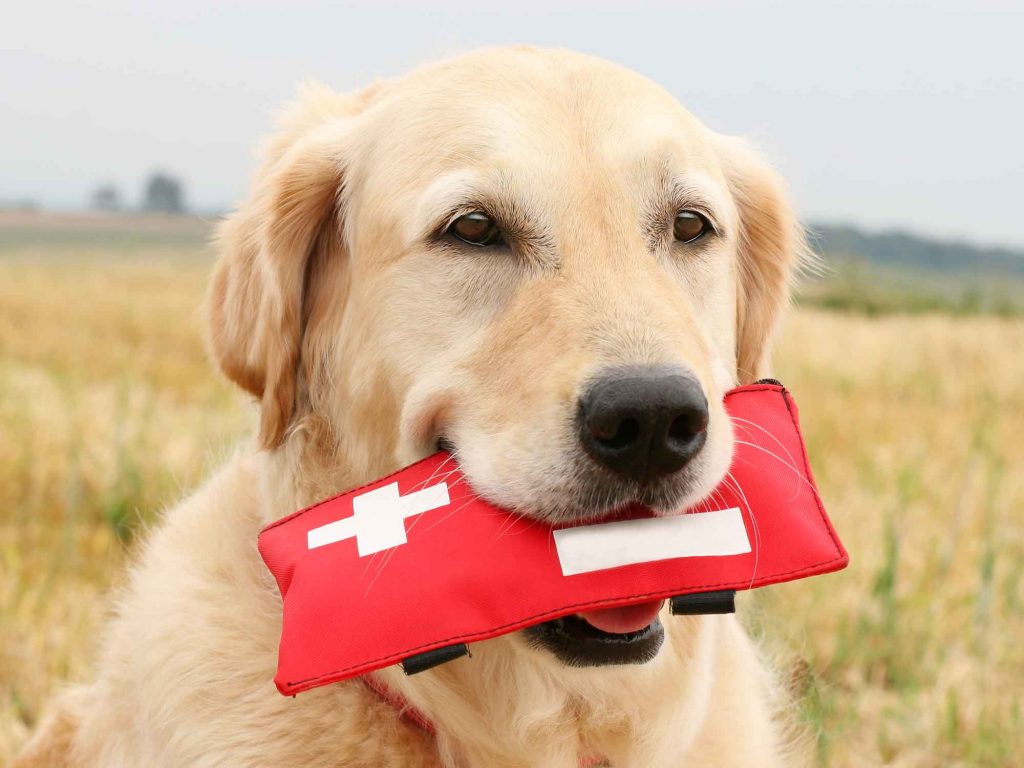 Ensuring you have a comprehensive pet first aid kit and the knowledge to employ it is crucial for pet owners in emergency readiness. Our furry friends rely on us for their well-being. Yet, many of us overlook preparing for unforeseen circumstances, such as being equipped to handle pet injuries.
Ensuring you have a comprehensive pet first aid kit and the knowledge to employ it is crucial for pet owners in emergency readiness. Our furry friends rely on us for their well-being. Yet, many of us overlook preparing for unforeseen circumstances, such as being equipped to handle pet injuries.
At Lone Tree Veterinary Medical Center, we believe that having a well-stocked pet first aid kit, and knowing how to use it, is an essential part of emergency preparedness for any pet owner.
Creating a Pet First Aid Kit
We recommend that pet owners carry a pet first aid kit in their car and also keep one in an easily accessible location in the home. Pet first aid kits can be purchased ready-made from pet supply stores or online (here’s one we like) or you can make your own from scratch.
My Pet Ate What? GI Obstruction in Pets
 Every pet owner knows how much pets enjoy food. Unfortunately, sometimes this love of chewing and swallowing can get our pets into trouble, particularly when they ingest something inedible causing a GI obstruction.
Every pet owner knows how much pets enjoy food. Unfortunately, sometimes this love of chewing and swallowing can get our pets into trouble, particularly when they ingest something inedible causing a GI obstruction.
In many cases, something a dog or cat ate will pass through the digestive tract with little to no trouble, but this is not always true. Any object can become lodged in a pet’s gastrointestinal (GI) tract (esophagus, stomach, or intestine), creating problems at any point along the way, including, the destruction of the area of the intestines where the foreign material is lodged. Continue…
Tummy in Knots? Recognizing and Preventing Bloat in Dogs
 Few conditions can kill a dog as quickly as bloat. Although many pet owners are unaware of it, bloat in dogs is one of the most serious, and potentially deadly, pet emergencies. Understanding the signs of bloat, as well as your emergency options, are crucial in protecting your dog from this dangerous affliction.
Few conditions can kill a dog as quickly as bloat. Although many pet owners are unaware of it, bloat in dogs is one of the most serious, and potentially deadly, pet emergencies. Understanding the signs of bloat, as well as your emergency options, are crucial in protecting your dog from this dangerous affliction.
Understanding Bloat in Dogs
Bloat, also known as gastric dilation volvulus (GDV), occurs when gas and fluid cause the stomach to distend. In some dogs, this distention can cause the stomach to twist along its axis (also called torsion), cutting itself off from the esophagus and duodenum. Continue…
Do You Hear What I Hear? Rattlesnake Safety
 Did you know there are rattlesnakes in Colorado? Rattlesnakes are a fact of life around these parts. Most of us are aware of the dangers snakes pose to us as we hike and camp, or even while we putter around in our own backyards. Rattlesnakes and pets are a particularly disastrous combination, thanks to our pets’ curious nature and unpredictability.
Did you know there are rattlesnakes in Colorado? Rattlesnakes are a fact of life around these parts. Most of us are aware of the dangers snakes pose to us as we hike and camp, or even while we putter around in our own backyards. Rattlesnakes and pets are a particularly disastrous combination, thanks to our pets’ curious nature and unpredictability.
Do you know what to do if you and your pet happen across a rattlesnake? Learning about rattlesnake safety for pets is key to protecting your furry loved one.
Rattlesnake Behavior
Having a basic understand of rattlesnakes will you avoid a bite. Rattlesnakes often warm themselves in the sun, hunt, migrate and den in the same areas year after year.
Snakes Are Introverts
Snakes are shy creatures and prefer to be left alone. Rattlesnakes will not act aggressively unless they are threatened.
Rattlesnake Bite
A rattlesnake bite is a serious risk to your pet. Once the venom is injected, it begins to act immediately. The blood vessels near the region of the bite are compromised, and an immune response causes severe swelling and pain. Because the venom also affects the blood’s ability to clot, large amounts of blood may be lost. The effects of the venom will lead to shock, and eventually death, if left untreated. Continue…
Pet Microchipping: Using Technology To Bring Your Pet Home
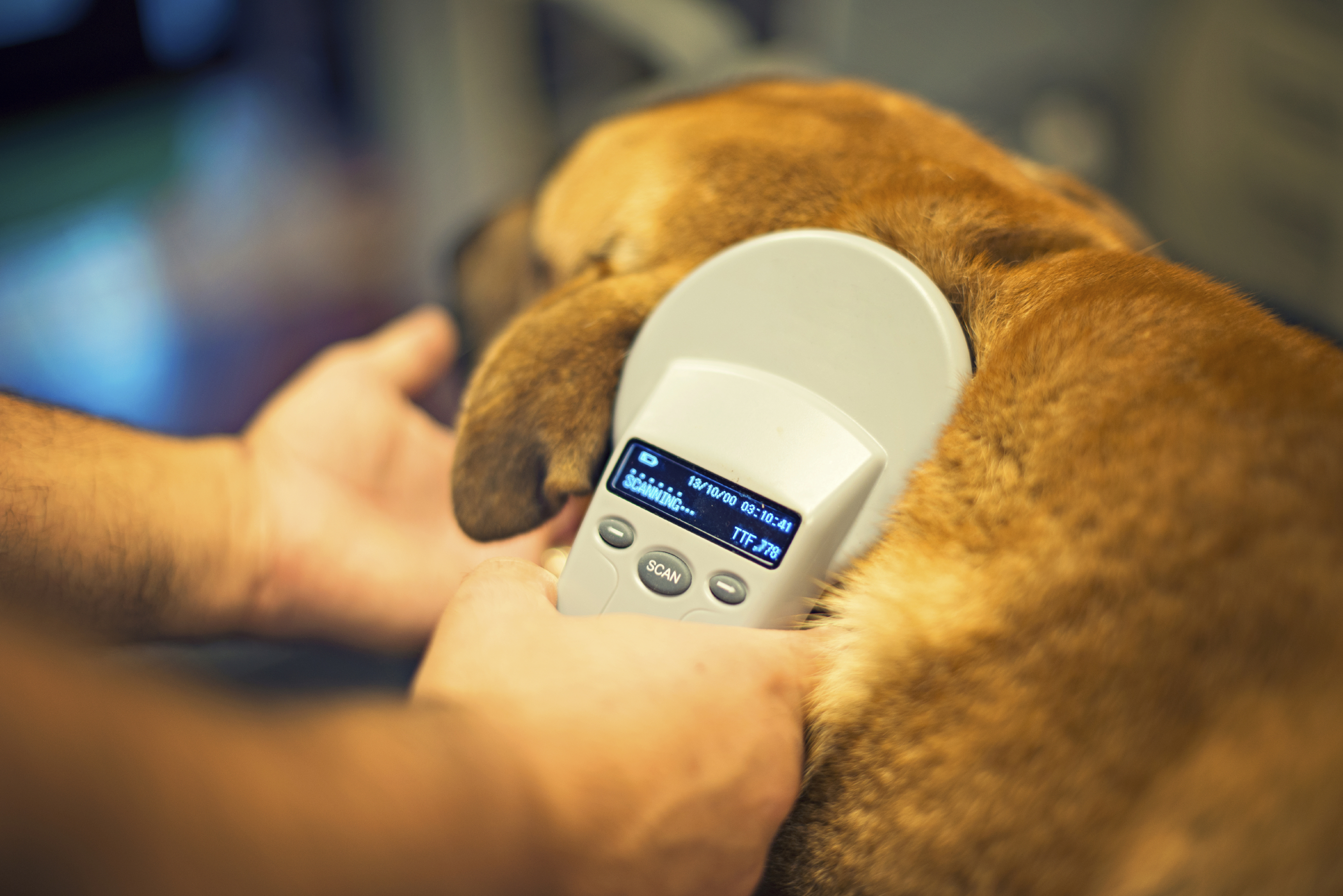 Becoming separated from a beloved pet is a scary thought for responsible pet owners everywhere. Most of us do whatever we can to prevent our pets from becoming lost; leashed walks, fenced-in yards, keeping pets indoors, the list goes on. But despite our best efforts, accidents can and do happen, and even the best behaved pet can wind up missing.
Becoming separated from a beloved pet is a scary thought for responsible pet owners everywhere. Most of us do whatever we can to prevent our pets from becoming lost; leashed walks, fenced-in yards, keeping pets indoors, the list goes on. But despite our best efforts, accidents can and do happen, and even the best behaved pet can wind up missing.
Having your pet microchipped may be the best way to increase the odds of being reunited with your pet, should he or she become lost. Continue…
Foxtails And Pets: A Dangerous Combination
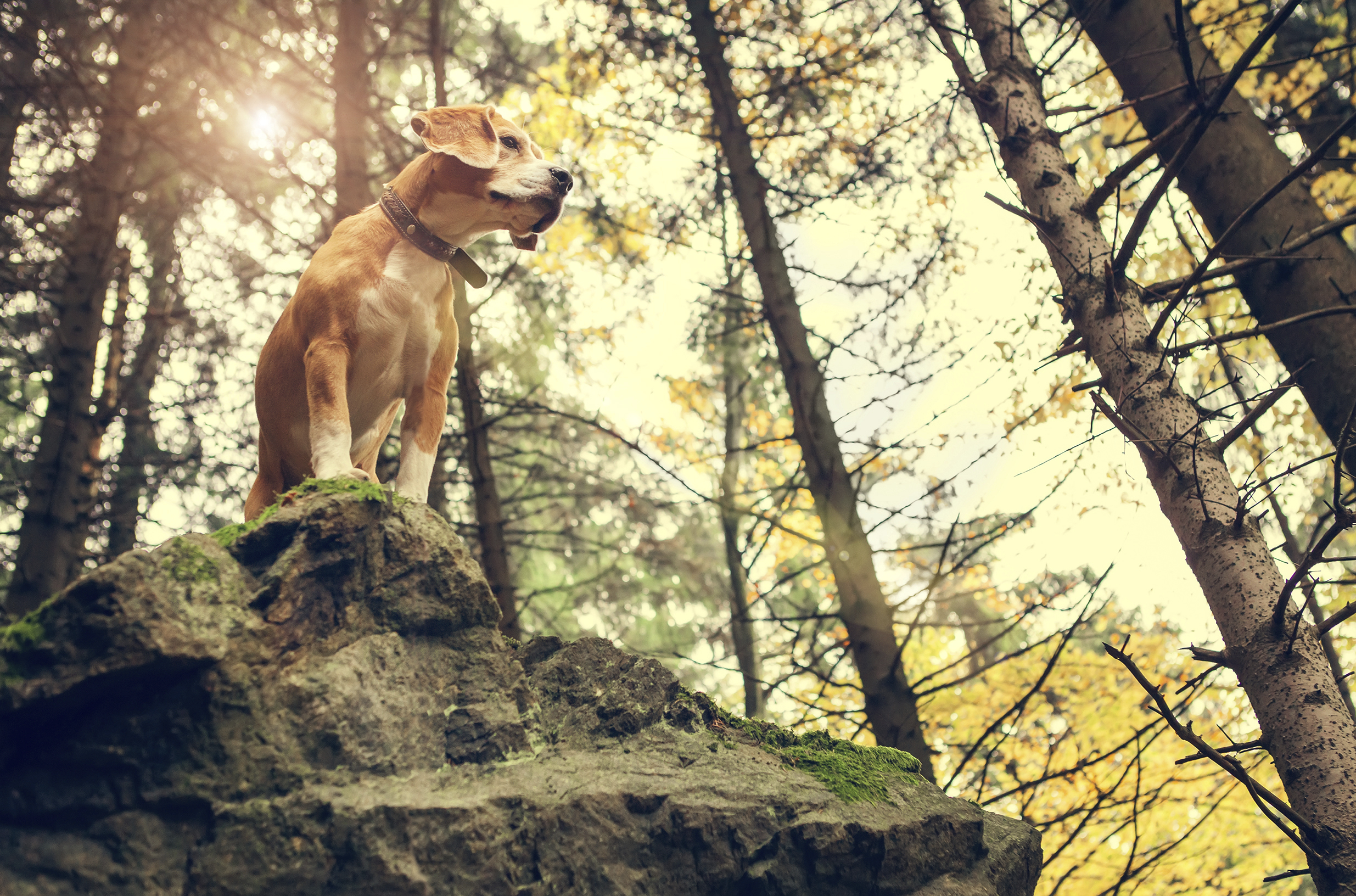 Spring is right around the corner, and while this is mostly a good thing for our pets (more time outside!) the good weather brings with it one of the biggest concerns faced by our Front Range pets: Foxtails.
Spring is right around the corner, and while this is mostly a good thing for our pets (more time outside!) the good weather brings with it one of the biggest concerns faced by our Front Range pets: Foxtails.
This pesky weed does more than just annoy us in our fields and foothills. The spiky seeds of foxtail grasses can seriously harm our pets when they get trapped in their fur or inhaled. So before we head into the great outdoors with our four-legged friends this spring and summer, let’s review the basics of foxtail dangers and how to keep our pets safe. Continue…



